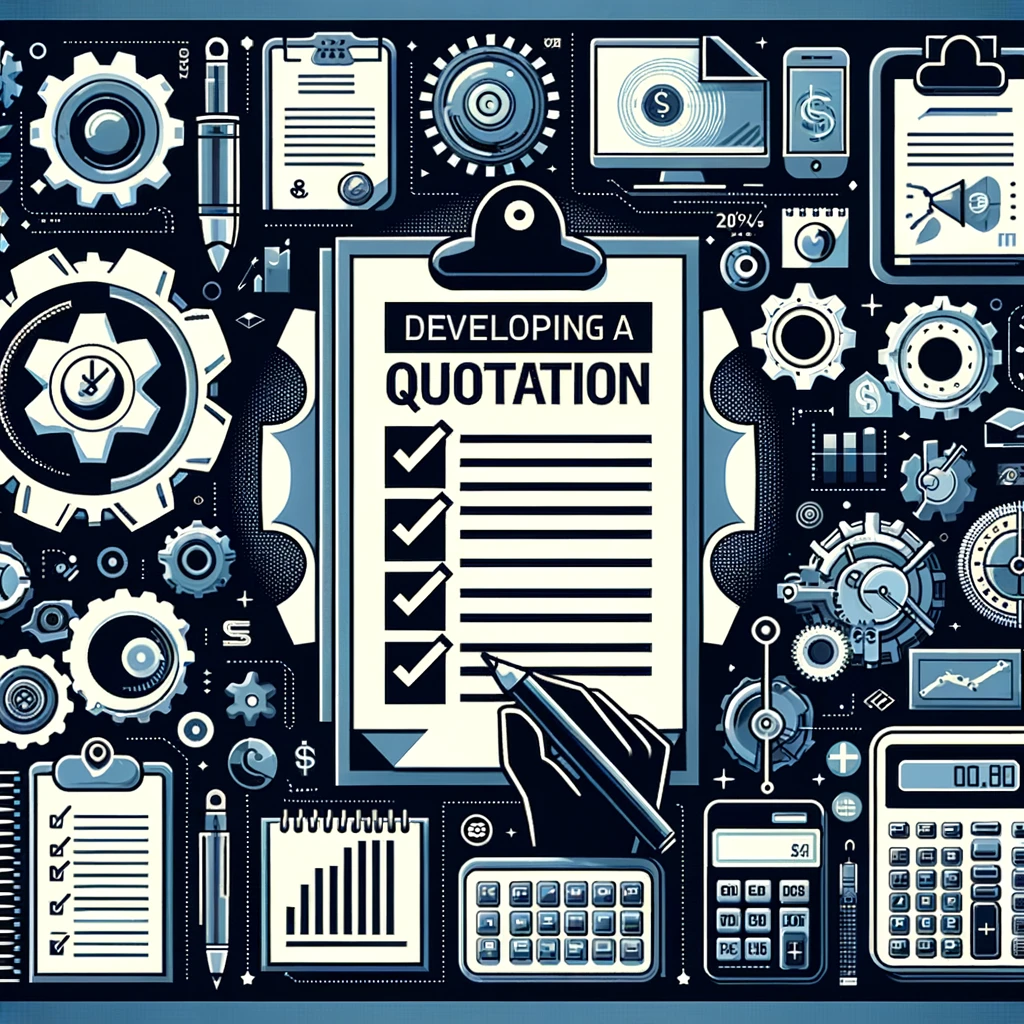Understanding the Importance of a Quotation
Creating a well-structured and accurate quotation is essential when offering contractual or consulting services in the tech field. A detailed quotation not only sets clear expectations for both parties but also helps establish a professional relationship built on transparency and trust. This guide provides a step-by-step approach to developing a comprehensive quotation, along with useful links and information to ensure you cover all essential aspects.
A quotation is a formal document that outlines the costs and terms associated with a specific project or service. It serves several key purposes:
- Clarity: Provides a clear understanding of what services will be provided and at what cost.
- Professionalism: Demonstrates professionalism and helps build credibility.
- Legal Protection: Can serve as a binding agreement if accepted by the client.
- Financial Planning: Assists both the provider and the client in budgeting and financial planning.
Key Components of a Quotation
A detailed quotation should include the following components:
1. Contact Information
Include your business name, address, phone number, email, and website, as well as the client’s contact information.
2. Quotation Number and Date
Assign a unique quotation number and include the date of issuance to help with record-keeping and tracking.
3. Project Description
Provide a detailed description of the project, including the scope of work, objectives, and deliverables. This section should be clear and concise to avoid any misunderstandings.
4. Itemized Costs
Break down the costs into itemized components, such as:
- Labor Costs: Hourly rates or fixed fees for services provided.
- Material Costs: Any hardware, software, or other materials required.
- Miscellaneous Costs: Travel expenses, communication costs, or other incidental expenses.
5. Total Cost
Sum up all the itemized costs to provide a total project cost. Include any applicable taxes and clearly state the total amount payable.
6. Payment Terms
Specify the payment terms, including the payment schedule (e.g., upfront payment, milestones, final payment), accepted payment methods, and any late payment penalties.
7. Timeline
Outline the project timeline, including start and end dates, and any important milestones. Be realistic with your time estimates to ensure you can meet the deadlines.
8. Terms and Conditions
Include any terms and conditions related to the project, such as cancellation policies, confidentiality agreements, and warranties.
9. Validity Period
Specify the validity period of the quotation, indicating how long the quoted prices and terms are valid.
10. Acceptance Signature
Provide a space for the client to sign and date the quotation to indicate acceptance. This can serve as a binding agreement once signed.
Steps to Develop a Quotation
Step 1: Gather Information
Collect all relevant information about the project, including client requirements, project scope, and any special considerations.
Step 2: Estimate Costs
Calculate the costs for labor, materials, and any other expenses. Be thorough and consider all potential costs to avoid underquoting.
Step 3: Draft the Quotation
Using the key components outlined above, draft the quotation. Ensure that all sections are clear and detailed.
Step 4: Review and Revise
Review the quotation for accuracy and completeness. Make any necessary revisions to ensure clarity and accuracy.
Step 5: Send the Quotation
Send the quotation to the client and be available to answer any questions they may have. Follow up if you do not receive a response within a reasonable timeframe.
Useful Links and Resources
- Upwork – How to Write a Professional Quotation
- Fiverr – How to Create a Freelance Proposal
- QuickBooks – Creating a Quotation for Your Business
- TechRepublic – Writing an Effective Project Proposal
Conclusion
Developing a comprehensive and accurate quotation is a crucial step in securing contractual or consulting work in the tech field. By following the outlined steps and ensuring all key components are included, you can create a professional quotation that sets clear expectations and fosters a positive client relationship. Utilize the provided links and resources for additional guidance and tools to enhance your quotation process.
Keywords:
Quotation for Tech Work, Consulting Quotation, Contractual Work, Professional Quotation, Tech Consulting, Project Proposal, Cost Estimation, Freelance Quotation, Payment Terms, Client Agreement

No responses yet